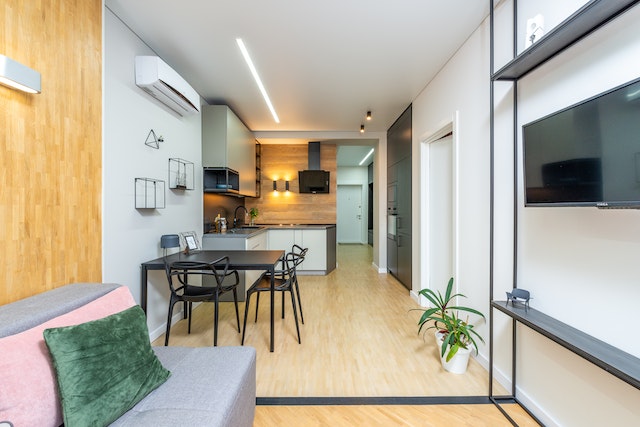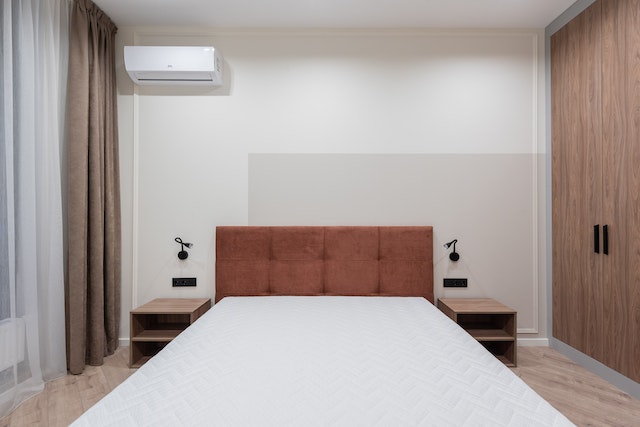Nothing compares to entering a cool, air-conditioned room when the summer sun is shining. Ducted air conditioning is one of the more elegant cooling options that can turn your house into a comfortable haven. Imagine not having to fight over who gets to operate the thermostat and being able to enjoy a perfectly temperature-controlled space with a single button press!
However, what is ducted air conditioning exactly? How does it operate? Is it appropriate for your house? This guide will cover all you need to know about ducted air conditioning, from its many advantages to installation advice and financial considerations, whether you’re thinking about replacing your existing system or installing one for the first time. Let’s examine how ducted systems can improve your quality of life while reducing your energy costs.
The advantages of ducted air conditioning
One easy way to keep your house comfortable is with Ducted Air Conditioning. Every room can have a consistent temperature thanks to the thoughtfully positioned vents.
The whisper-quiet operation is one of the main advantages. Ducted air conditioning ensures peace and quiet in your living areas by operating silently in the background, unlike window units or portable systems.
Another important benefit is energy efficiency. Over time, lower utility bills result from modern ducted systems’ design, which maximises cooling power while minimising energy consumption.
Design that is aesthetically pleasing is also important. Without large equipment on display, ducts are concealed inside walls or ceilings, maintaining the integrity of your home’s interior design.
Additionally, a lot of models have sophisticated features like zoning. This enables you to easily accommodate everyone’s preferences by controlling the temperature in various rooms of your house separately.

Factors influencing ducted air conditioning costs
The price of ducted air conditioning depends on a number of factors. Your home’s size is very important. Costs may increase due to the need for larger spaces, which call for more powerful units and extensive ductwork.
The kind of system you select is also important. Although high-efficiency models are usually more expensive, they can ultimately result in lower energy costs.
Complexity of installation also matters. Labour costs will go up if your house needs major renovations or if there is restricted access for installation.
Pricing is also influenced by location. Due to the demand for and supply of qualified technicians, installation rates are frequently higher in urban areas than in rural ones.
Cost is influenced by brand reputation; premium brands typically offer better warranties and support, but the initial outlay is higher.
Average installation and maintenance expenses
Knowing the costs is essential when thinking about ducted air conditioning. The size and design of your house can have a significant impact on installation costs. For a full system, homeowners may spend anywhere from $7,000 to $15,000.
These numbers may also be impacted by other elements, such as the installation’s complexity or the necessary adjustments. For instance, compared to new construction, retrofitting an existing property may incur additional costs.
Long-term expenses are also significantly influenced by maintenance. The average annual cost of routine checks is between $150 and $300. These inspections prolong the life of your unit and guarantee peak performance and efficiency.
Remember that skipping maintenance can result in more expensive repairs down the road. Regular maintenance protects your investment over time and improves comfort.

Advice for selecting the ideal system for your house
There are a number of factors to take into account when selecting the best ducted air conditioning system. Determine the size of your house first. A system that is too big may result in inefficiencies, while one that is too small will not cool efficiently.
Next, consider ratings for energy efficiency. Seek out systems with high star ratings; they will ultimately result in lower utility costs.
Take zoning options into account as well. A zoned system enables you to regulate temperatures separately for rooms with different cooling requirements.
Keep noise levels in mind. Certain units are more silent than others, which is important for living spaces and bedrooms.
Seek advice from experts prior to making a purchase. They can offer information based on your unique layout and climate, enabling you to make a well-informed choice that suits your requirements.
Typical errors to avoid when installing
You can save time, money, and stress when installing ducted air conditioning by avoiding common pitfalls. Undervaluing the significance of appropriate sizing is one big error. Selecting a system that is either too big or too small for your area can result in inefficiency and higher energy expenses.
Incorrect vent placement is another common mistake. The placement of vents has a big impact on how air is distributed throughout your house. Make sure they are positioned carefully to prevent hot or cold spots in spaces.
Another crucial error is ignoring insulation. Before the valuable cooled air reaches its destination, it is lost through poorly insulated ducts. To increase efficiency, spend money on premium insulation materials.
Future installation problems may arise from not hiring qualified experts. Always look for certified technicians who are knowledgeable about local building codes and installation best practices.
After your system is operational, don’t neglect routine maintenance. Over time, poor performance may result from neglecting regular checks.
You’ll be better prepared to guarantee a successful ducted air conditioning experience from beginning to end if you are aware of these mistakes.





